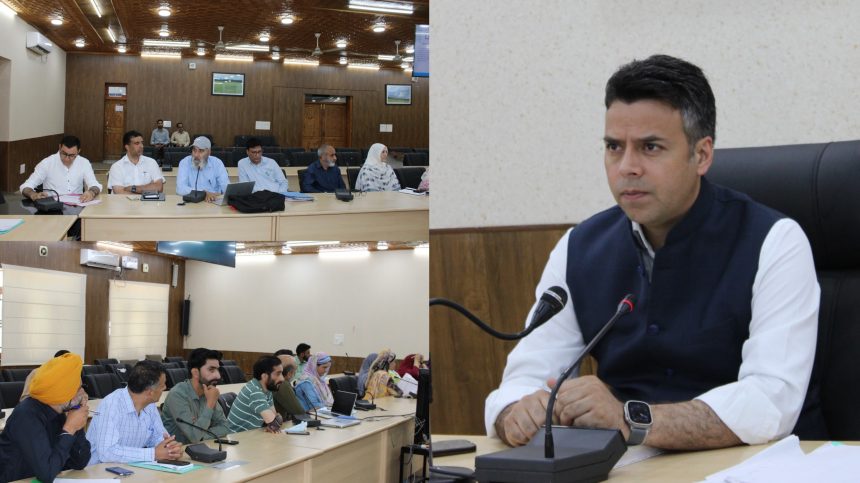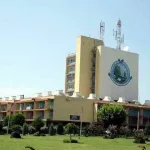Budgam, July 24: A comprehensive District level Zoonotic Committee (DLZC) meeting was convened today under the chairmanship of Deputy Commissioner (DC) Budgam, Dr. Bilal Mohi-Ud-Din Bhat, whose is also Chairman of DLZC.As per a statement issued here, the session was presented by State Veterinary Consultant (IDSP) Kashmir, who gave a detailed overview of the current zoonotic threats including Rabies, Brucellosis, Avian Influenza, Leptospirosis, and Scrub Typhus. She highlighted how these diseases not only affect public health but also have economic and agricultural implications, disrupting food systems and overburdening healthcare infrastructure. She underlined Rabies as a priority concern due to high incidence of stray dog bites in the region, emphasizing the fatal nature of the disease and the urgent need for mass dog vaccination drives, sampling, and community education. She also drew attention to Brucellosis in livestock handlers, Avian Influenza from migratory birds, and waterborne risks of Leptospirosis, calling for intensified surveillance and community-based interventions.DC stressed on various key challenges like Inadequate surveillance systems across human and animal health sectors, poor inter-departmental coordination among Health, Veterinary, Forest and Municipal bodies, low public awareness in rural and semi-urban zones, gaps in diagnostic infrastructure and delayed outbreak response mechanisms. He directed all departments to adopt a ‘One Health’ approach, ensuring coordinated action across veterinary, human health, and environmental sectors. He stressed on early detection through joint surveillance, timely sharing of data, integrated IEC campaigns, and prompt field response. He also highlighted the importance of safe water supply, food hygiene, animal control, and community participation. DC further directed for strengthening of District Level Rapid Committees (DLRCs) for combating rabies or other diseases. He directed CPO to include District Disease Investigating Officer (veterinary) in the DLRCs for prompt response in combating any zoonotic diseases. He further reviewed the roles of various departments like Jal Shakti, especially their involvement in water-borne disease outbreaks through joint sampling, testing, and provision of potable water in affected areas. DC directed municipality and PRIs to coordinate with Animal Husbandry in catching and controlling the stray dog population. He also directed all stakeholders to ‘Take a S.T.E.P. in the Right Direction,’ focusing on Source identification, Transmission control, Entry prevention and Public awareness to effectively combat zoonotic diseases in the district.
Zoonotic committee meeting held at Budgam

Sign Up For Daily Newsletter
Be keep up! Get the latest breaking news delivered straight to your inbox.
By signing up, you agree to our Terms of Use and acknowledge the data practices in our Privacy Policy. You may unsubscribe at any time.
Leave a Comment Leave a Comment
Stay Connected
Latest News
Recent Posts
- KU to remain closed, all exams scheduled by varsity cancelled tomorrow
- LG Sinha expresses gratitude to PM Modi, Union Health Minister for increase in MBBS seats in J&K
- J&K gets 190 additional MBBS Seats
- All educational institutions to remain closed tomorrow in Kashmir: Div Com
- Shri Mata Vaishno Devi Shrine Board extends relief to landslide affected families







